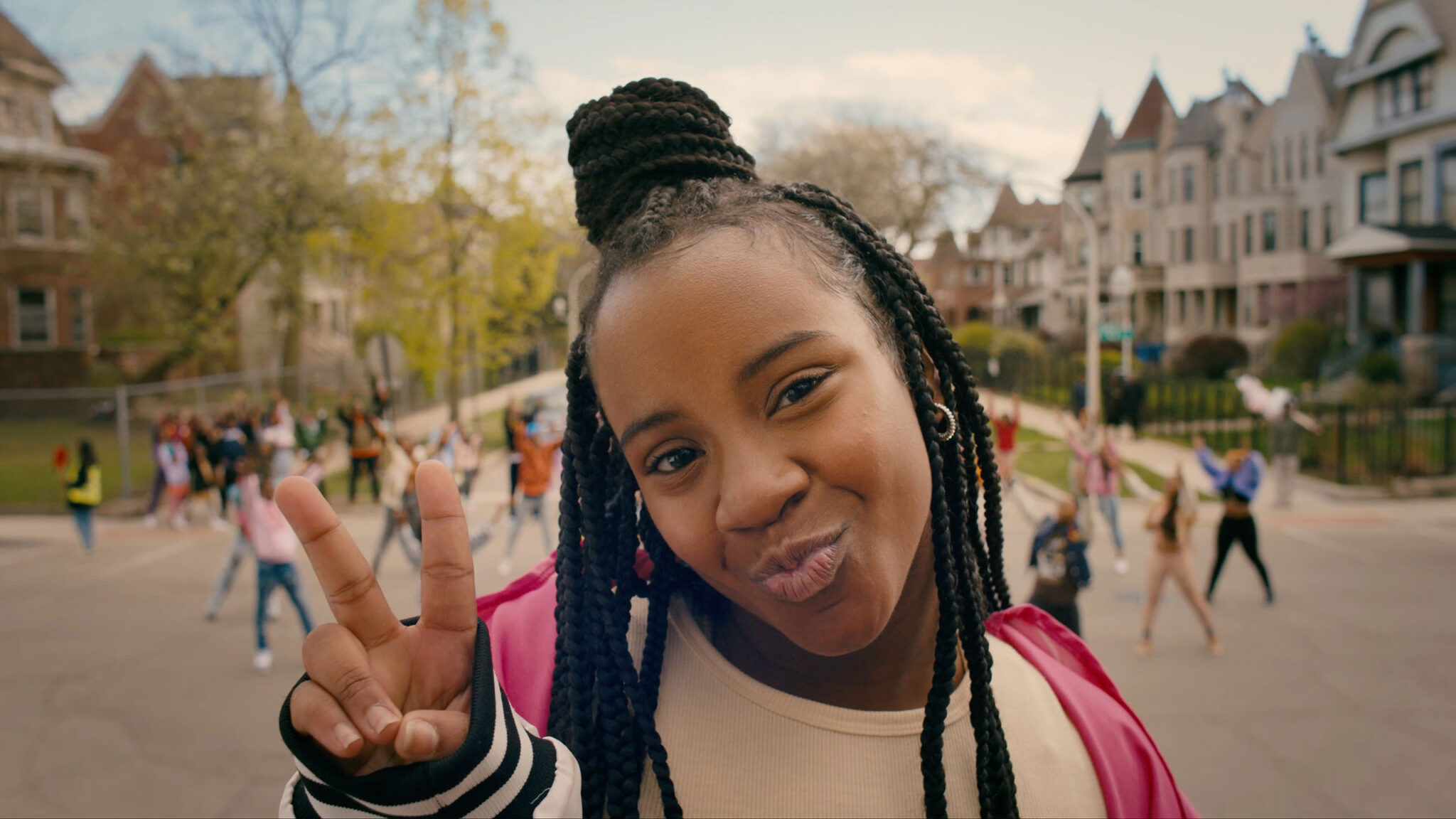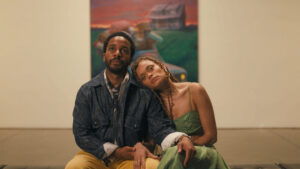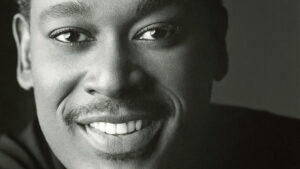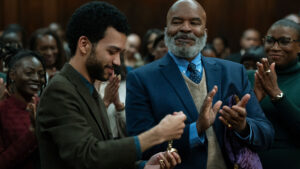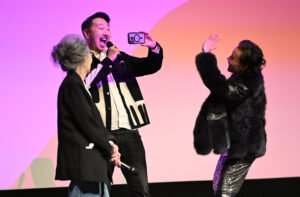By Lucy Spicer
One of the most exciting things about the Sundance Film Festival is having a front-row seat for the bright future of independent filmmaking. While we can learn a lot about the filmmakers from the 2024 Sundance Film Festival through the art that these storytellers share with us, there’s always more we can learn about them as people. This year, we decided to get to the bottom of those artistic wells with our ongoing series: Give Me the Backstory!
“I used to always say when there was some problem on set, ‘It’s not like we’re doing something like a teacher or doctor, you know something really important,’” recalls director Nzingha Stewart. “I don’t say that anymore.” Being on lockdown during the COVID-19 pandemic in 2020 really cemented the importance of storytelling for Stewart, who began her career directing music videos before branching out into television and film. “I saw what film did for people who were lonely — it was a friend and a comfort. What it did for parents who needed to entertain their kids so they could work. What it did for people who needed to reconnect over a story with their partner. What it did for people who needed to lose themselves from a heartbreaking time even if it was just for a little while,” she explains. “I’ll never again diminish that.”
There’s no doubt as to the importance of the stories Stewart is telling with her series Me/We, whose first episode premiered as part of the Episodic Pilot Showcase at the 2024 Sundance Film Festival. The pilot stars Camryn Jones as Amaria “Yaya” Jones, a dance-loving teenager hoping to convince her brother to let her walk to school with her crush. The real-life Amaria Jones was killed in 2020 when a stray bullet came through a window in her home; this episode celebrates the young girl’s life.
Keyonna Taylor, one of Me/We’s co-writers, recognizes the power of bringing stories to the screen in particular. “Someone told me that I should just make this a book of memoirs because it’s easier to get made,” she says. “But I didn’t want to just write a book, I wanted to help create legacies for these people who were robbed of the opportunity to create one for themselves.”
Below, discover the emotions Stewart and Taylor hope to convey with the story, the challenges and joys that came with filming in Chicago, and why it’s crucial that Me/We reaches audiences now.
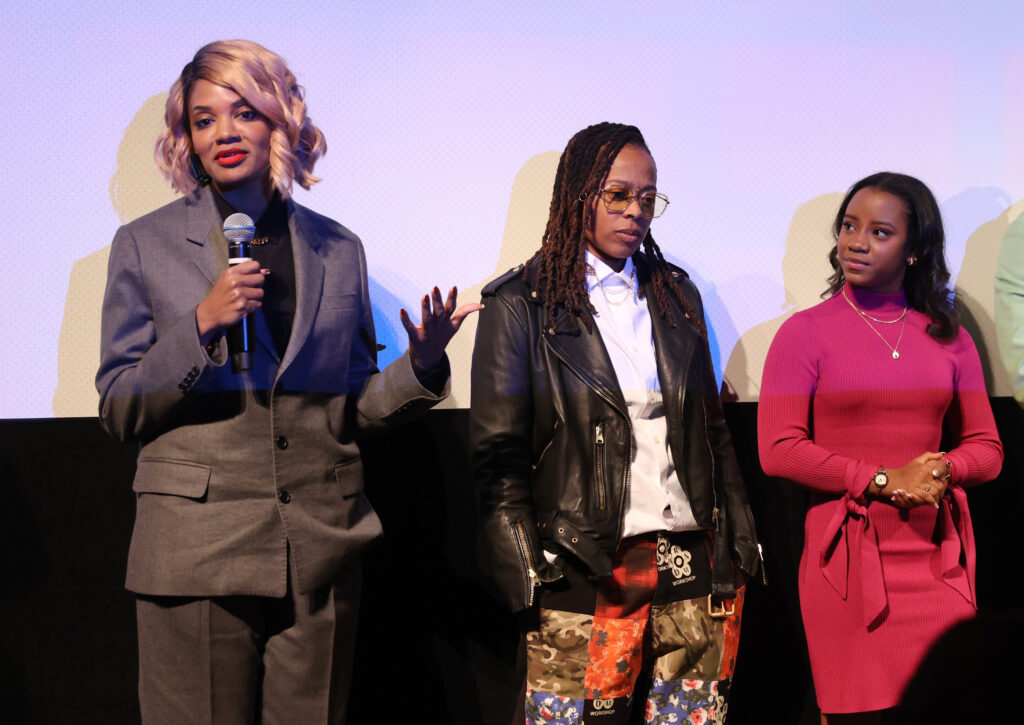
What was the biggest inspiration behind this project?
Nzingha Stewart: I was in a really introspective place when I read this script. Feeling like the world was getting dark and people were apathetic, and I was wondering what is the artist’s role in speaking to that? Reading this and how it humanized victims of gun violence and made them seem real, felt like well, I at least know as an artist what I can do RIGHT NOW.
Keyonna Taylor: It was the hopelessness I felt and I know other families feel when they lose a loved one at the hand of someone else and there is nothing you can do about it. You never get closure because you never get justice. In my case, I got angry because my aunt was an outstanding human, and I wanted everyone to know that. I wanted to SCREAM it to strangers in the streets — her life was important! This is that scream.
Describe who you want this story to reach.
Stewart: I’m good with everyone! I also want it to reach those kids on the South Side of Chicago where we filmed so that they know someone cares about what’s happening to them and their community. I want it to affect those who would be tempted to violence to see the lives that will be torn apart. I want it to reach the governor of Illinois, the mayor of Chicago — anyone with an open mind and heart who just needs one more little push to take action to protect the lives of our kids who are dying of gun violence like it’s an epidemic.
Taylor: I want this to reach everyone! Yes, this is a story about a Black girl with a Black cast, and Black people will relate to it, but these stories need to be shared beyond that, so that others can see the sameness in all of us as human beings and maybe start to care just a little bit more.
Why does this story need to be told now?
Stewart: Just in making this I feel hope. I realized through this process that I feel more hopeless when I’m inactive than when I’m doing something, anything to make my little corner a little more conscious.
Taylor: There is no time in American history that these stories haven’t needed to be told. But in 2020, George Floyd’s murder was caught on camera, and we happened to all be locked in the house with no way to turn a blind eye to what has been going on in our communities for years. Those eight minutes gave America an opportunity to truly see, feel, hold themselves accountable, and heal together. If I’m honest, I think the window is closing.
How do you want people to feel after they see your project?
Stewart: I’m sure they’ll probably feel confused at first — wait, this is a real person? And then they will be curious and google, “What is the real story?” And then there will be heartbreak. And that’s the right emotion. I think it was Alice Walker who said, “Breaking the heart opens it.” And I love that this film INVOLVES the viewer in that journey to an open heart.
Taylor: Joyous, connected, energized, then gut-punched, angry, and inspired.
Tell us an anecdote about casting or working with your actors.
Stewart: A lot of our actors were nonactors. Getting the footwork style of dance that is native to Chicago right was important to us, and finding kids who could do that AND had an acting background AND sounded like they were from Chicago was a tall order, so a lot of our cast were dancers that Keyonna found on Instagram! They had never acted before, and a big part of the process was just talking to them for a long time before “action” so that they could start to relax and just be.
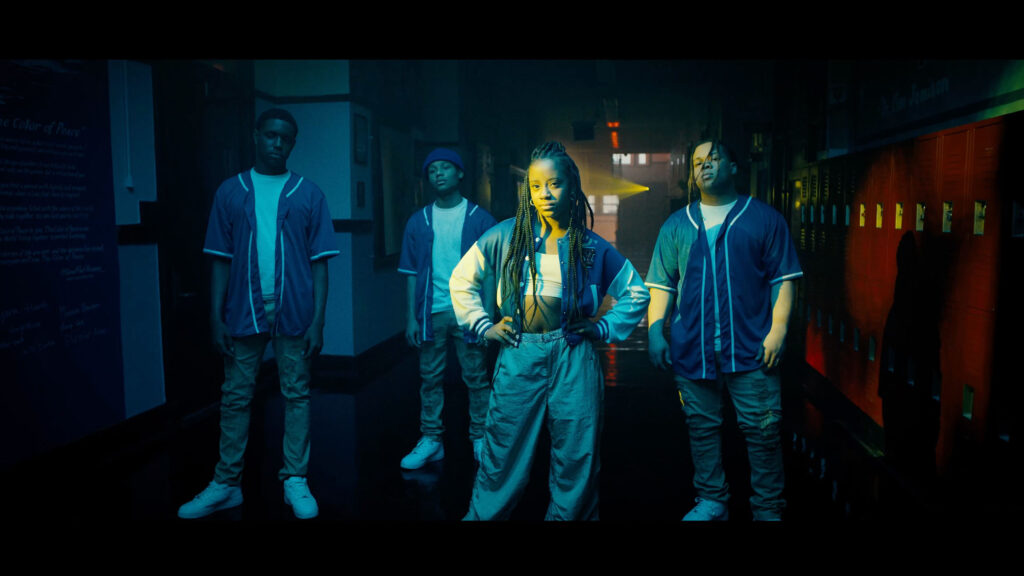
Your favorite part of making the episode? Memories from the process?
Stewart: My favorite part of the film was when Amaria’s real family visited our set. There were tears all around — myself, Keyonna, our director of photography, choreographer… and they were so joyful! We included them in the final dance number, and there was a real sense that they felt like they were given one more moment with their “Yaya.”
Taylor: My favorite part of making this was the love we got from the Chicago natives. Everyone in the production cast and crew got the vision, and we operated with a strong unified passion and purpose. Every day was beautiful.
What was a big challenge you faced while filming?
Stewart: The weather was rough — Chicago in winter is always fun. But the real challenge was that we wanted to shoot with real natives on the South Side of Chicago, and it really is going through a gun violence epidemic. Members of our background cast would have to leave because a family member had just been shot. Members of our cast had to attend funerals for family members who had been killed. We had to schedule around that, but we also had to emotionally hold space for that when they returned to set. And there was this heartbreaking feeling at the end that we got to leave and they had to stay. I wish I could take so many of those kids home with me. But our job here was to tell their story.
If you weren’t a filmmaker, what would you be doing?
Stewart: I don’t even want to think about it.
Taylor: Teaching.
What is something that all filmmakers should keep in mind in order to become better cinematic storytellers?
Stewart: How can you say something without using words? At the end of Me/We, we do a shot where we put our actor on a crane and carry her up into the sky. It is totally impractical and takes us out of the reality we were so careful to build, but it was how she felt, and I knew that the audience would always care more about how you make them feel than whether something is “technically” right — which allows you limitless possibilities in what the visual language of your story can be.
What was the last album you listened to?
Stewart: André 3000’s flute album. That’s a true fan!
Taylor: Nipsey Hussle, The Marathon Continues.
Early bird or night owl?
Stewart: Night owl!
Taylor: Early bird.
What’s your favorite film that has come from the Sundance Institute or Festival?
Stewart: Beasts of the Southern Wild — and that little Hushpuppy — just knocked me out.
Taylor: Moonlight.




